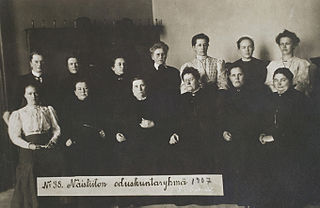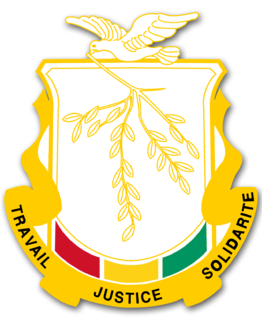
The unicameral Assemblée nationale or National Assembly is Guinea's legislative body. Since the country's birth in 1958, it has experienced political turmoil, and elections have been called at irregular intervals, and only since 1995 have they been more than the meaningless approval of a one-party state's slate of candidates. The number of seats has also fluctuated. It is currently at 114, with members selected by two different methods.
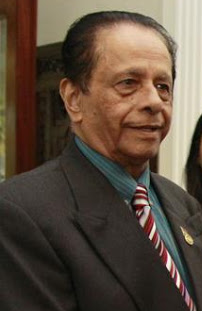
General elections were held in Mauritius on 30 August 1987. The result was a victory for the Alliance, composed of the Labour Party, the Mauritian Socialist Movement and the Mauritian Social Democrat Party, which won 44 of the 70 seats.

Parliamentary elections were held in Sudan between 12 April and 2 May 1968. The election followed the resignation of a third of the members of the Assembly elected in 1965. The result was a victory for the new Democratic Unionist Party, formed by a merger of the National Unionist Party and the People's Democratic Party in December 1967 and led by President Ismail al-Azhari, which won 101 of the 218 seats. Voter turnout was 61.0%.

Parliamentary elections were held in Niger on 14 February 1993. They were the first multi-party elections in the country since independence in 1960, and followed constitutional changes approved in a referendum the previous year. Although the ruling National Movement for the Development of Society won the most seats, several opposition parties formed the Alliance of the Forces of Change following the elections, between them controlling 50 seats. Voter turnout was just 32.7%.

Presidential elections were held in Mali on 12 April 1992, with a second round on 26 April. They were the first presidential elections in the country to feature more than one candidate following the reintroduction of multi-party democracy the previous year. The result was a victory for Alpha Oumar Konaré of the Alliance for Democracy in Mali, who defeated Tiéoulé Mamadou Konaté of the Sudanese Union – African Democratic Rally. Voter turnout was 23.6% in the first round and 20.9% in the second.

Parliamentary elections were held in French Sudan on 8 March 1959. The result was a victory for the Sudanese Union – African Democratic Rally (US-RDA), which won all 80 seats. Voter turnout was just 32.3%. The following year, French Sudan declared independence as Mali, and was declared a one-party state with the US-RDA as the sole legal party. As a result, these would be the last multi-party elections held in the country until 1992.

Parliamentary elections were held in Mali in 1964. Voters were presented with a single list from the Sudanese Union – African Democratic Rally (US-RDA), which had been the sole legal party since shortly after independence in 1960. As a result, it won all 80 seats in the National Assembly. According to official results, 99 percent of those who voted approved the US-RDA list. Voter turnout was 88.9%.

Parliamentary elections were held in Mali on 20 July 1997, with a second round on 3 August. They followed the April elections, which had been annulled by the Constitutional Court due to "serious irregularities". The result was a victory for the Alliance for Democracy in Mali, which won 128 of the 147 seats elected in the country, a further 13 being elected by Malians living abroad. The elections were boycotted by the National Congress for Democratic Initiative, the Sudanese Union-African Democratic Rally, the Popular Movement for the Development of the Republic of West Africa, the Rally for Democracy and Progress, the Rally for Labour Democracy, the Union of Democratic Forces for Progress and the Malian Union for Democracy and Development. Voter turnout was just 21.6%.

Parliamentary elections were held in Ivory Coast on 25 November 1990, the first since the restoration of multi-party democracy earlier in the year. Although 17 of the 25 legalised parties ran in the election, nearly half of the 490 candidates were from the former sole legal party, the Democratic Party of Côte d'Ivoire – African Democratic Rally (PDCI). The PDCI won a landslide victory, taking 163 of 175 seats on 71.7 percent of the vote. Only two other parties got into the legislature, winning just 12 seats between them. Voter turnout was reported to be around 40%.

General elections were held in Guinea on 1 January 1968 to elect a President and National Assembly. The country was a one-party state at the time, with the Democratic Party of Guinea – African Democratic Rally as the sole legal party. Its leader Ahmed Sékou Touré was re-elected President unopposed, whilst in the National Assembly elections the party produced a list of 75 candidates for the 75 seats, which voters were asked to approve. Voter turnout was 99.7%.
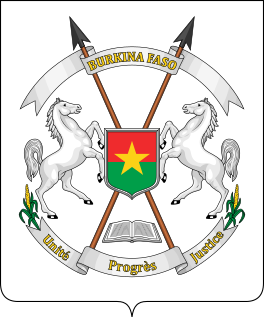
Parliamentary elections were held in the Republic of Upper Volta on 7 November 1965. The country had been a one-party state since 1960, with the Voltaic Democratic Union-African Democratic Rally as the sole legal party. It therefore won all 75 seats in the National Assembly. Voter turnout was 97.4%.

Parliamentary elections were held in the Republic of Upper Volta on 30 April 1978. They followed a constitutional referendum the previous year, which came about as a result of the military coup in 1974. Eight parties and 367 candidates contested the election.
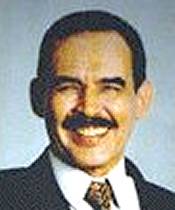
Parliamentary elections were held in Mauritania on 11 October 1996, with a second round in 16 of the 79 constituencies on 18 October. After the ruling Democratic and Social Republican Party (PRDS) won 60 of the 63 seats decided in the first round, the opposition Union of Democratic Forces boycotted the second round, resulting in the PRDS winning a total of 70 seats. Voter turnout was 52.1%, and only around 30% in Nouakchott.

Territorial Assembly elections were held in Chad on 30 March 1952. The result was a victory for Gaullist parties, with the Rally of the French People winning all 15 seats in the First College and the Chadian Democratic Union winning 24 of the 30 seats in the Second College.

Territorial Assembly elections were held in French Sudan on 30 March 1952. The Sudanese Progressive Party remained the largest party, winning 28 of the 40 Second College seats, with the Sudanese Union – African Democratic Rally winning the remaining 13.

Elections to the French National Assembly were held in French Sudan on 10 November 1946 as part of the wider French parliamentary elections. Three members were elected, with the Sudanese Progressive Party winning two seats and the Sudanese Union – African Democratic Rally one.

Elections to the French National Assembly were held in French Sudan on 17 June 1951 as part of the wider French parliamentary elections. Four members were elected, with the Sudanese Progressive Party winning three and the Sudanese Union – African Democratic Rally one.

Elections to the French National Assembly were held in French Sudan on 2 January 1956 as part of the wider French parliamentary elections. Four members were elected, with the Sudanese Progressive Party (PSS) and the Sudanese Union – African Democratic Rally (US–RDA) winning two each. Mamadou Konaté and Modibo Keïta were elected on the US–RDA list, whilst Fily Dabo Sissoko and Hamadoun Dicko were elected for the PSS.

A by-elections to the French National Assembly was held in French Sudan on 8 July 1956 following the death of Mamadou Konaté of the Sudanese Union – African Democratic Rally (US−RDA), one of the territory's four MPs. US−RDA candidate Baréma Bocoum was elected.


